 Anil Kumble is former chairman of ICC’s cricket committee and forthcoming to usage of technology. (Source: AP)
Anil Kumble is former chairman of ICC’s cricket committee and forthcoming to usage of technology. (Source: AP) The International Cricket Council has moved to reassure reluctant India officials about the benefits of the Decision Review System by pushing for consistency in the adoption of technology across the international arena.
“Our aim is to prepare a roadmap for the use of consistent DRS technology,” ICC general manager of cricket Geoff Allardice said. “At matches in different parts of the world, sometimes umpires are left without conclusive evidence in one series where in another, they might __have that conclusive evidence with more tools available.”
India will be using DRS at home for the first time in the upcoming five-Test series against England, and the ICC will hold meetings in February with the aim of standardizing the regulations.
-
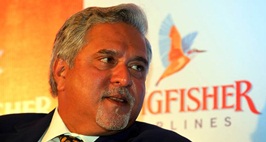 Find Out What A Delhi Court Said About Vijay Mallya
Find Out What A Delhi Court Said About Vijay Mallya -
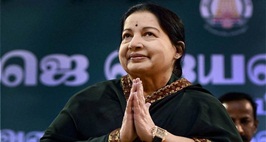 Apollo Hospitals Give Health Update Of Tamil Nadu CM Jayalalithaa: Find Out More
Apollo Hospitals Give Health Update Of Tamil Nadu CM Jayalalithaa: Find Out More -
 Editors Guild Condemns One Day Ban On NDTV India: Find Out More
Editors Guild Condemns One Day Ban On NDTV India: Find Out More -
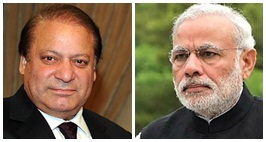 Faceoff Escalates Between India & Pakistan: Find Out What Happened
Faceoff Escalates Between India & Pakistan: Find Out What Happened -
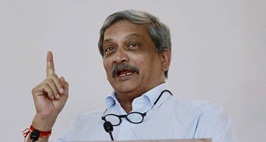 Here’s What Defence Minister Manohar Parrikar Thinks Is A Matter Of Concern
Here’s What Defence Minister Manohar Parrikar Thinks Is A Matter Of Concern -
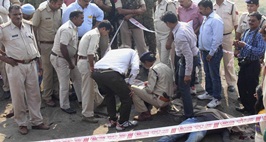 Here’s What Police Were Heard Saying During SIMI Activists’ Encounter in Bhopal
Here’s What Police Were Heard Saying During SIMI Activists’ Encounter in Bhopal -
 Bigg Boss 10 November 3 Review: Lopamudra And Mona Lisa Take A Dip In The Swimming Pool
Bigg Boss 10 November 3 Review: Lopamudra And Mona Lisa Take A Dip In The Swimming Pool -
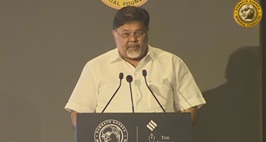 RNG Awards: Express Group Chairman Viveck Goenka’s Opening Address
RNG Awards: Express Group Chairman Viveck Goenka’s Opening Address -
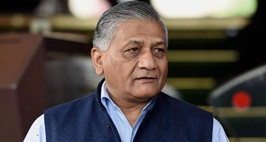 Here’s What Union Minister VK Singh Said Over Suicide Of Ex-Serviceman
Here’s What Union Minister VK Singh Said Over Suicide Of Ex-Serviceman -
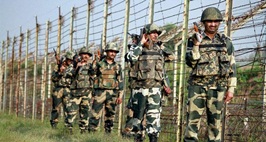 Here’s India’s Response To Pakistan’s Allegations Of Ceasefire Violation By Indian Army
Here’s India’s Response To Pakistan’s Allegations Of Ceasefire Violation By Indian Army -
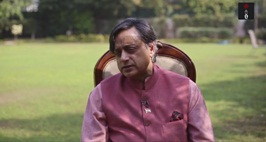 Shashi Tharoor Talks About British Colonialism In India In His New Book ‘An Era Of Darkness’
Shashi Tharoor Talks About British Colonialism In India In His New Book ‘An Era Of Darkness’ -
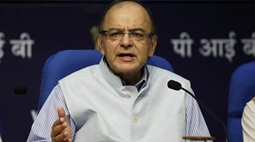 GST Council Fixes Rates: Find Out More
GST Council Fixes Rates: Find Out More -
 Vikas Rath Yatra: Shivpal Singh Wishes CM Akhilesh To Win Upcoming UP Election
Vikas Rath Yatra: Shivpal Singh Wishes CM Akhilesh To Win Upcoming UP Election -
 Akhilesh Yadav Says Farmers, Youth, Everyone Will Support SP
Akhilesh Yadav Says Farmers, Youth, Everyone Will Support SP -
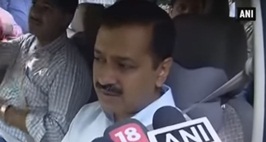 OROP Suicide: Pride Which Led Congress Down, Will Also Take Down BJP, Says Arvind Kejriwal
OROP Suicide: Pride Which Led Congress Down, Will Also Take Down BJP, Says Arvind Kejriwal
The Indian cricket board had been reluctant to embrace the DRS, which has long been in play in places such as Australia and England, because of a lack of consistency in what technology is available at different venues.
Allardice said input from coach Anil Kumble, an ex-international spin bowler and a former chairman of the ICC’s cricket committee, was instrumental in persuading India of the benefits technology can bring in cases of contentious umpiring decisions.
“As chairman he was keen to make sure that the technologies used as part of DRS were assessed independently,” Allardice said in a telephone conference on Thursday. “He was also present in the committee meeting in May last year when results of the tests were presented. He was aware of the committee’s position that they wanted a more consistent use of technology across international matches.”
The ICC said ball tracking technology was standard now in the DRS, and sound-based detection systems such as Snickometer helped simplify interpretations for the TV umpires tasked with reviewing decisions made by officials on the field. Hot Spot, designed to highlight when bat touches ball in the cases of catching and leg before wicket decisions, and Virtual Eye tracking could enhance the overall DRS if adopted unilaterally.
“There are logistical challenges at making it available for every match,” Allardice said. But, “Having reputable, independent people saying that different types of technology are fit for purpose provides some reassurance to all people involved in cricket.”
India, the wealthiest and increasingly most powerful cricket market in the world, has agreed to trial DRS and the ICC is taking every step it can to help make it become a permanent fixture.
“From the time we were advised that the BCCI would be using it against England, our focus has been on the delivery of DRS in that series,” Allardice said. “It involves making sure we get the umpire appointments, an independent TV umpire, and making sure all the support staff and DRS equipment gets to those matches.
“We will provide them all information in assessing performance of the system, and work out steps to implement it beyond the England tour.”
One of the key issues pertaining to DRS use recently has been umpiring errors. Sri Lanka’s Kumar Dharmasena came in for sharp criticism during the recent England-Bangladesh Test series, where a number of his on-field decisions were reversed after review by a third umpire using DRS technology. He will be officiating in the India-England series as well.
“Often DRS delivers its best result when the pitch is turning or seaming and umpiring is difficult,” Allardice said. “Generally in DRS series we deliver 97-98 percent correct decisions, (irrespective of) whether the conditions are difficult for umpiring, or whether the umpire is having a good day or a bad day.”
Questions about the future of Test cricket inevitably arose in the telephone conference, particularly speculation about whether a Test championship or a two-tier system are still possibilities in the near future.
Allardice said the ICC was working on a new proposal that hopefully would be tabled in the first half of next year.
No comments:
Post a Comment